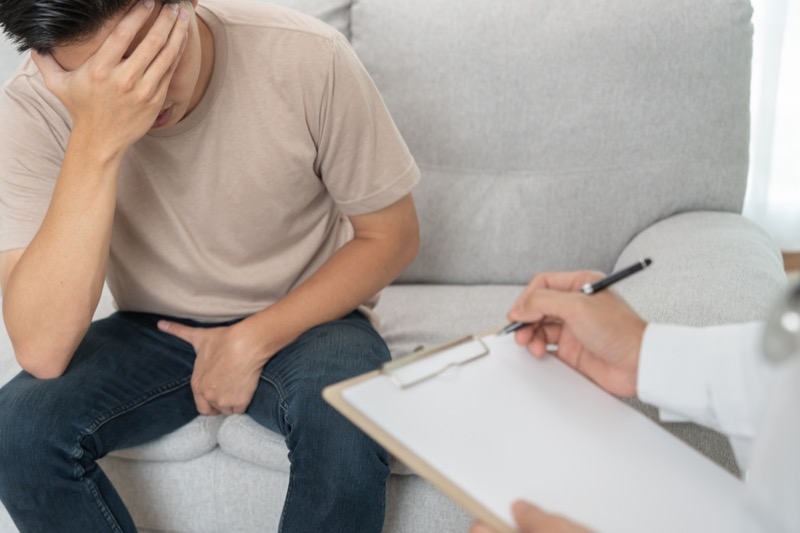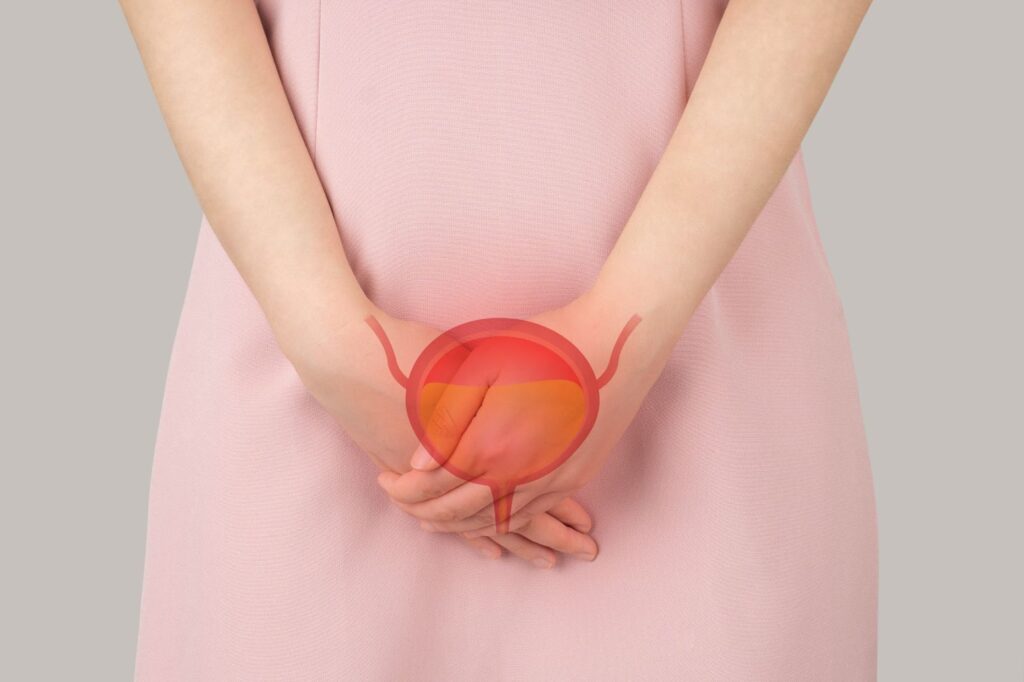Bladder infections, also known as urinary tract infections (UTIs), are common and often cause symptoms like frequent urination and a burning sensation. However, many people wonder if a bladder infection can also lead to back pain.
The answer is yes—Cystitis can sometimes cause discomfort in the lower back, which may indicate that the infection has spread or is affecting nearby structures.
Understanding the link between Cystitis and back pain is crucial for recognizing symptoms and seeking appropriate treatment to prevent complications.
The Connection Between Bladder Infections and Back Pain
Bladder infections primarily affect the urinary system, but they can sometimes lead to back pain, particularly in the lower back. This pain occurs when the infection spreads from the bladder to the kidneys, causing inflammation and discomfort in the surrounding areas.
Back pain associated with a bladder infection can range from mild to severe and is often accompanied by other symptoms such as fever, chills, and nausea.
It’s important to address back pain related to a bladder infection promptly, as it may signal a more serious condition, like a kidney infection, requiring immediate medical attention.

Understanding Bladder Infections
Bladder infections are a common type of urinary tract infection that can cause various uncomfortable symptoms and may have different risk factors and causes.
Common Symptoms of Bladder Infections
Bladder infections often present with symptoms such as a strong, persistent urge to urinate and a burning sensation during urination. Additional symptoms may include cloudy, strong-smelling urine and pelvic discomfort.
Bladder Infection Risk Factors and Causes
Several factors can increase the risk of developing a bladder infection, including sexual activity, certain forms of birth control, and a suppressed immune system. The most common cause of bladder infections is the entry of bacteria, particularly Escherichia coli (E. coli), into the urinary tract.
How Bladder Infections Can Lead to Back Pain
Bladder infections can lead to back pain when the infection ascends from the bladder to the kidneys, causing a kidney infection or pyelonephritis. This progression results in inflammation and swelling in the kidneys, which can radiate pain to the lower back.
The pain may be sharp, throbbing, or aching and is often accompanied by other symptoms such as fever, chills, and nausea, indicating a more serious infection that needs immediate medical attention.
Differentiating Between Back Pain from a UTI and Other Causes
Back pain can stem from various sources, and distinguishing whether it is related to a urinary tract infection (UTI) or another issue is essential for appropriate treatment. While some symptoms overlap, understanding the differences can help identify the root cause and seek the right care.
Common Causes of Back Pain Unrelated to UTIs
Back pain unrelated to UTIs often arises from musculoskeletal issues such as muscle strain, herniated discs, or spinal problems. These conditions typically present with localized pain, stiffness, or restricted movement and are usually not accompanied by urinary symptoms.
How to Tell if Back Pain is Related to a Bladder Infection
Back pain related to Cystitis is often accompanied by other UTI symptoms, such as a burning sensation during urination, frequent urination, and pelvic discomfort. If the back pain is severe and accompanied by fever, chills, or nausea, it may indicate that the infection has spread to the kidneys, necessitating prompt medical evaluation.

Treatment Options
Addressing both bladder infections and the associated back pain involves a combination of medical treatments and pain management strategies. Effective treatment not only targets the infection but also alleviates discomfort and prevents complications.
Treatment for Bladder Infections
Cystitis are typically treated with antibiotics prescribed by a healthcare provider to eliminate the infection-causing bacteria. It’s crucial to complete the full course of antibiotics to ensure the infection is fully resolved and to reduce the risk of recurrence.
Pain Management for Back Pain Associated with UTIs
For back pain related to a bladder infection, pain management may include over-the-counter pain relievers such as ibuprofen or acetaminophen to reduce discomfort and inflammation. In addition, applying heat to the affected area and staying well-hydrated can help ease the pain and support recovery. If back pain persists or worsens, consult a healthcare provider for further evaluation and treatment.
When to See a Doctor
Knowing when to seek medical attention is crucial for addressing Cystitis and any related back pain effectively. If you experience symptoms such as severe or persistent back pain, fever, chills, or blood in your urine, it’s important to consult a healthcare provider promptly.
These could indicate that the infection has spread or is causing complications, requiring more intensive treatment.
Additionally, if you have recurrent bladder infections or if your symptoms do not improve with initial treatment, a medical evaluation is essential to determine the underlying cause and appropriate care.
Seeking Comprehensive Care at Aether Health
Bladder infections can sometimes lead to back pain, especially if the infection spreads to the kidneys.
If you experience severe symptoms or complications, Aether Health is an ideal emergency room for prompt and comprehensive care for Cystitis and related issues.
Our expert team ensures that you receive the right treatment to alleviate symptoms and prevent further complications, helping you get back to feeling your best. Contact us today!



